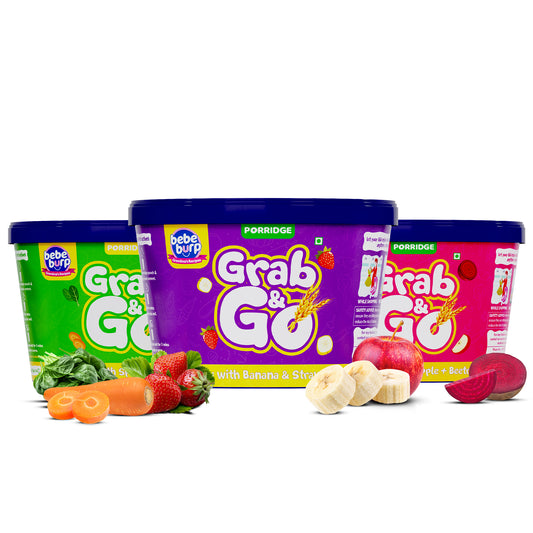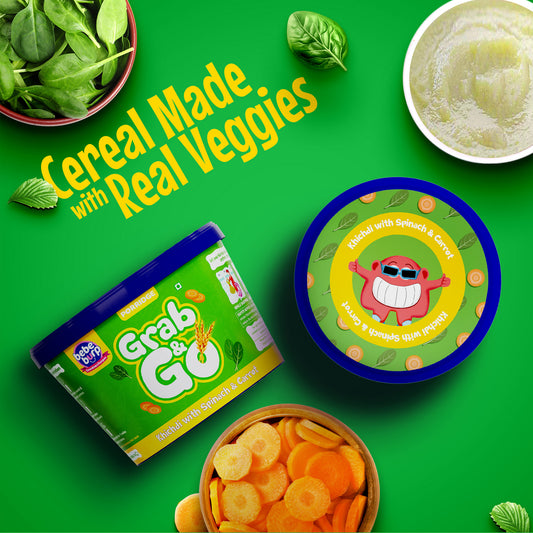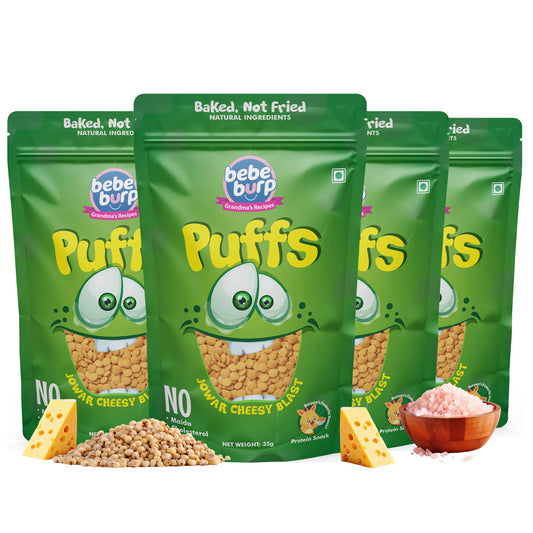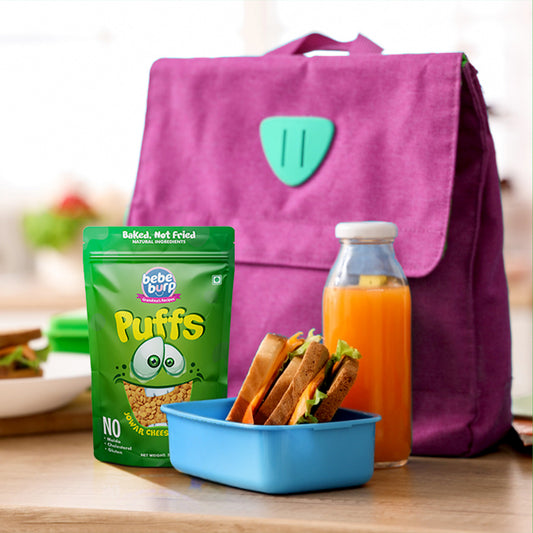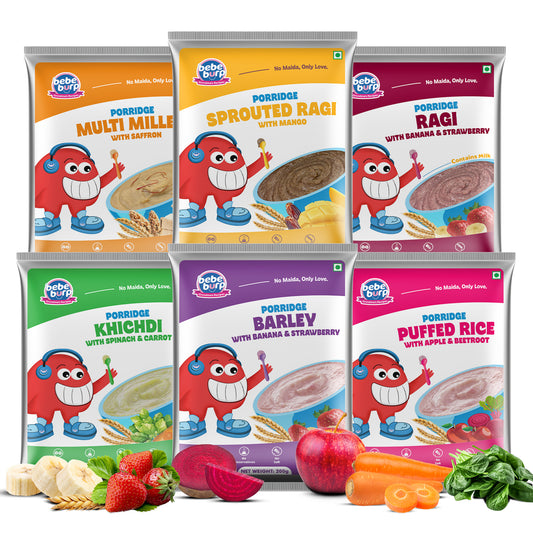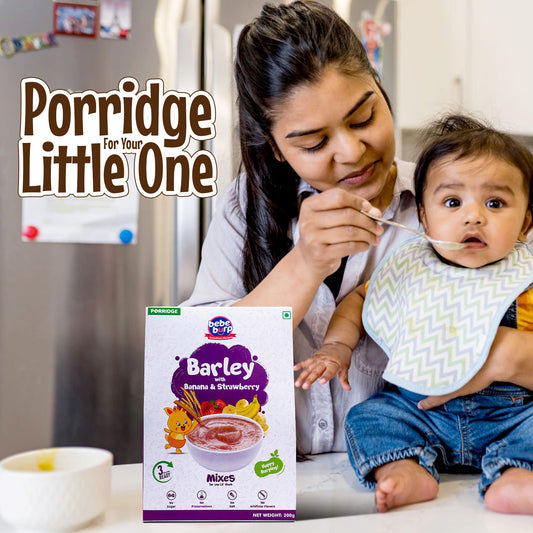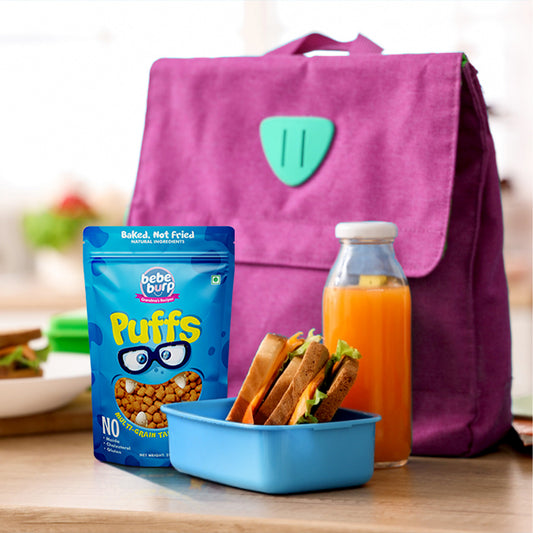Introduce new foods to your infant around 6 months old, as suggested by the American Academy of Pediatrics.
Babies can start with a single type of iron-rich cereal mixed with either breast milk or formula.
Slowly add fruits and vegetables, beginning with smooth purees and then moving to slightly thicker textures as the baby’s chewing abilities improve.
Only one new food should be given at a time, with a gap of 3-5 days between each to watch for any allergic reactions.
When to Start Introducing New Foods
Starting solids at the right time is important for your baby.
The generally recommended age to begin introducing solid foods is around 6 months, approximately when they start showing a few developmental signs of readiness.
First Things First Before You Begin, Make Sure Your Baby Is Ready to Start Solids:
Can hold support: You should be able to hold your baby in the right position so that he sits up; this is one of the ways to reduce the risk of choking.
Shows interest in eating: If your baby starts taking food from your fingers or opens his mouth when you eat, he may be ready for solids.
Be able to move food to the back (up) of the mouth: No longer using the tongue-thrust response to push food out of the mouth. Babies should be able to move food from the front of their mouth to the back so that they can swallow.
So, babies have lost the tongue-thrust response: During this time, they have a tongue-thrust reaction that helps them push food out of their mouth. This response will disappear at around 6 months of age, making it much easier for them to swallow food.
The Step-by-Step Process of Introducing New Foods
To fully unlock your baby’s potential, introducing solids is an exciting journey that must be approached step-by-step.
You must follow these steps to smoothly switch to solids.
Step 1: Start with single-ingredient purees
Start with basic, single-ingredient purees.
With this method, you can track your infant’s reactions to new foods while reducing the possibility of allergies. The most suitable starter foods are:
- Rice cereal (lack of iron supplementation)
- Carrot, pea, or sweet potato puree
- Apple, pear, and banana puree
Step 2: Don't introduce another food until 3 to 5 days have passed
After introducing a new food into your baby's diet, don't introduce another food for at least 3 to 5 days.
Giving this interval makes it easier to detect if any problems could indicate that the baby is allergic to the newly added food.
Step 3: Gradually introduce more variety
Once your baby is well-adjusted to some single-ingredient foods, try adding other ingredients and introducing more complex textures, such as mash and small, soft lumps.
Encourage your baby's interest with combinations such as apples and pears or sweet potatoes and peas.
How often should new foods be introduced?
Babies should be introduced at a slow and steady pace. This makes me curious if there is a golden rule as to how often new foods should be introduced.
- Week 1: Young babies need gradual changes. Therefore, a new dish should be introduced every 3 to 5 days.
- Weeks 2-4: Once your baby has adjusted to certain foods, you can introduce new foods every 2 to 3 days.
Do not force anything at all. Many babies are likely to offer strong hesitance or even total rejection, so patience is essential.
You do not need to fuss if a child doesn’t want to eat or refuses to; this is normal. Other strategies would be offering after some time or mixing foods.
Safety Considerations
When introducing children to solid foods, safety should always remain a priority from the very onset.
Follow the tips below to help your child have a safe feeding experience.
Avoid All Forms of Choking
Some foods are much more likely to choke babies. Awareness of these foods is necessary:
- Grapes
- Popcorn
- Nuts
- Hard vegetables such as raw carrots
All foods should be soft before being given to the baby. It should be cut into small pieces or mashed well into a paste.
As the baby grows, more complex shapes, textures and whole foods can be introduced.
Cutting Down Proper Food Storage
The risk of food infection can be avoided by using proper food storage.
If you are using purees that you have made yourself or even the jarred ones, it is important to ensure that:
- Always use airtight containers for storing food.
- Check the expiry date of store-bought pureed food.
- Maintaining food hygiene logically becomes the right practice, never mind the first one. Food should always be heated thoroughly, and uncooked, pre-fed food should be used.
Nutritional Balance
A proper diet supports babies' proper physical and mental growth.
When introducing solid foods, strive to balance all nutrients to meet their dietary requirements.
Important Nutrients Your Baby Needs
Below are a few of the many essential nutrients that your baby needs:
Protein: Essential for growth. Comes from breast milk or formula.
Carbohydrates: Provide energy. Found in milk and later in fruits and vegetables.
Fats: Crucial for brain development. Found in breast milk and formula.
Vitamins:
-
Vitamin A: For eyes and the immune system.
-
Vitamin D: For bone health (may need a supplement).
- Vitamin C: Helps with tissue repair and immunity.
Minerals:
-
Iron: Important for brain development.
-
Calcium: For strong bones and teeth.
- Zinc: Supports growth and immunity.
Water: For hydration. It comes from milk in the first months, then small sips of water can be introduced.
Fiber: Aids digestion. Comes from pureed fruits and vegetables.
Omega-3 (DHA): Supports brain development.
Practical Tips for Success
Consider these helpful pointers that can facilitate the introduction of new foods for both you and your baby.
Maintain a Routine: Try or aim to serve solids at roughly the same time each day to promote a routine.
Reduce the Portions: Begin with lower serving sizes. As time passes and your infant gets used to eating solids, you may slowly increase the serving size.
No Sudden Movements: Be gentle if your baby denies food; this is normal. While it's acceptable to attempt to give them various food options, avoid forcing them to consume what they do not wish to eat.
Expert Recommendations
It's always wise to consult a paediatrician or a nutrition specialist. Here is some advice on introducing solids to infants:
Add Different Options: Offering infants many fruits, vegetables, and grains might improve their likelihood of trying new items later.
Reduce unnatural flavors: It's best to use natural flavors in food given to babies. Babies aged zero to one don't need extra salt or sugar.
Check For Allergies: If there are allergies in the family, check with your paediatrician about which foods might be fine to try, as these include the most common allergens: dairy, peanuts, and shellfish.
Conclusion
The first time a baby tries a new food is an important milestone that also occurs within the early stages of their development.
If you require assistance ensuring that mealtimes with your slowly maturing baby are enjoyable and nutritious, consider employing a systematic approach to their needs that combines enjoyment with nourishment.
As with all things in life, patience is essential. Prioritize balance and safety regarding everything in their diet.


